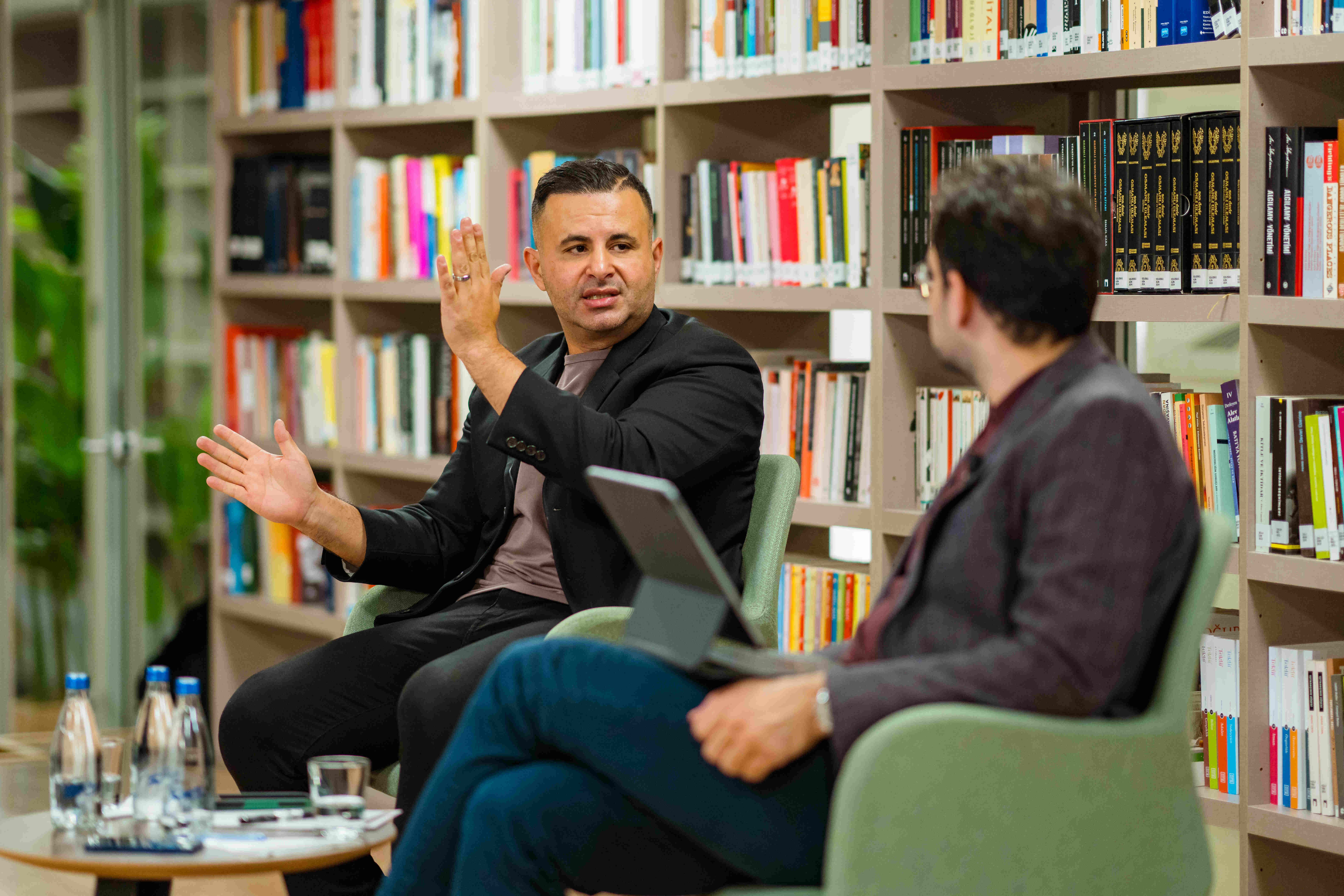
Khaled Beydoun Addresses the Two Faces of the West
Institute Social recently welcomed Professor Khaled Beydoun, a distinguished legal scholar, author, and activist from Arizona State University, for an insightful session in its Global Reflections series. The event, titled “Two Tales of the West: Unveiling Hypocrisy in Gaza and Beyond,” delved into the complex relationship between Western powers and the ongoing humanitarian crisis in Gaza.

Beydoun, whose expertise spans constitutional law, national security, and the intersection of Islamophobia in the U.S., used the event as a platform to examine the legal and human rights implications of the Gaza situation. He began by highlighting the unique nature of the genocide occurring in Gaza. “This is the first genocide in human history that is being broadcasted digitally. We are witnessing the violence unfold in real-time, through our phones and social media, almost like watching a science fiction series,” he explained.
Beydoun then shifted focus to the role of social media in the crisis, noting that while platforms like Facebook and Twitter were once seen as democratizing tools for expression, they have played a significant role in silencing activists during the Gaza genocide: He pointed out that “What we’re seeing is a stark contrast between the idealized notion of social media as a free platform and the reality that these platforms are shaped by the influence of governments and large tech companies.”He further emphasized how platforms such as Meta, with their close ties to governments, have become complicit in increasing censorship and restricting access to critical information.
Can the West Deliver on Its Promise of Peace and Democracy?
As the discussion turned to broader geopolitical question, Beydoun reflected on the West’s promise of peace and democracy, pointing out the deep disillusionment this promise has caused, particularly in conflict zones like Gaza. “The international system’s credibility was already questioned during the Iraq War. The only difference now is that we can see what's happening in real-time, right in front of us, on our phones,” he observed, drawing attention to how Israel’s actions and the West’s response have eroded trust in international law.
Beydoun went on to speak candidly to the younger members of the audience: “I see many young faces here. As I tell my law students, I want to be clear with you: Western law is not about values. It’s about power. So the idea that the U.S. or other Western countries can bring peace to any region is an unrealistic ideal.” He argued that Western interventions and legal frameworks are often more about advancing their own interests than promoting peace, which, in many cases, has remained little more than a political slogan. The talk concluded with a Q&A session, where the audience engaged directly with Beydoun’s insights.
Global Reflections series remains a vital platform for bringing together leading experts from diverse fields to engage in meaningful discussions about pressing issues in education, society, and the global economy.
For more information, you can watch our video.
https://youtu.be/I6jFQyCMofQ?feature=shared
